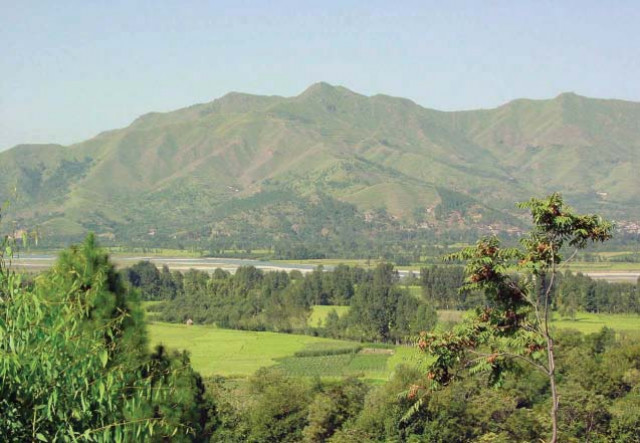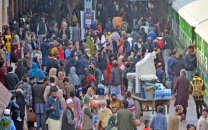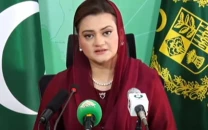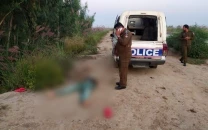Nafees Ahmed: ‘Swat is in my blood’
Nafees Ahmed, who acted in Jinnah, wishes to dedicate her life to helping the people of Swat.

Swat, a name synonymous with violence and terrorism, was once known for peace and serenity apart from its scenic beauty. The valley, which turned into the epicentre of terrorism, came to be known as the “valley of death” as the blowing up of schools, openly flogging women to death and target killings became common news.
Amidst this lawlessness, one seems to have forgotten that there was a time when the valley was known as a modern state, ruled by a visionary Wali — local leader of Swat.
Despite the bloody battle, love for the valley runs deep in the veins of Nafees Ahmed, who, at the age of seven, played the role of Dina, Muhammad Ali Jinnah’s daughter, in the 1998 film Jinnah. “I wish to dedicate my life to helping my brothers and sisters in Swat,” said the now 21-year-old. Ahmed, daughter of Akbar S Ahmed, a renowned scholar who currently resides in Washington DC and also the producer of the film, is completing an undergraduate programme from Georgetown University in Washington DC and is currently visiting Swat.
She talks about her deep attachment with the Swat valley which is adorned with high mountains, green meadows, and clear lakes. “Swat is in my blood. I’ve always been immensely proud of my Pashtun heritage and as a child, I would also tell my friends abroad about the beauty of the Pashtun people — their green eyes and fierce passion for honour and hospitality. It is due to this attachment that I regularly visit Swat,” said Ahmed.
When the valley was inflicted with turmoil, she felt the miseries of her Swati brothers and sisters. “When the people of Swat suffer, it’s not just their problem; it’s my problem as well. My mother Zeenat Ahmed, distraught at the news, sold many of her valuable possessions to collect money for the internally displaced people (IDP). We used to visit IDP camps to distribute medical aid. I learnt a lot from the Swati people in the camps. They were courageous and graceful.”
To her, terrorism in Swat was puzzling. “It is ironic that Swat which was known for its law and order had transformed into a lawless jungle. It was indeed a bitter time for us when Swat made international headlines, acquiring the reputation of becoming the epicentre of Taliban rule. However, that time is over now and we look forward to peace in Swat,” said Ahmed.
Ahmed runs a radio station in her university and through this medium, she spreads awareness about the culture and the people of Swat. “I’ve also been actively involved in interfaith dialogue through which I seek to dispel misunderstandings about Muslims.”
Recently, Ahmed played the lead role in the play Noor and the role of Princess Roshanara in The Trial of Dara Shikoh — both plays written by her father and staged in Washington DC.
However, her upcoming plans include returning to the land of her forefathers to help the people of Swat restore their lost glory. “After finishing my graduation, I will come back to Swat to help people from disadvantaged socio-economic backgrounds. I strongly believe that Swati people will soon restore their former glory and will live a life of respect.”
Published in The Express Tribune, July 31st, 2011.



















COMMENTS
Comments are moderated and generally will be posted if they are on-topic and not abusive.
For more information, please see our Comments FAQ